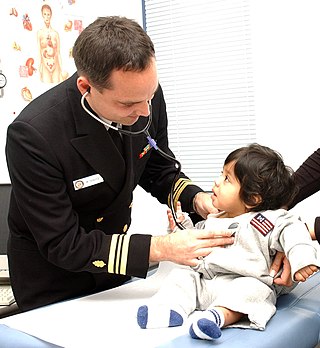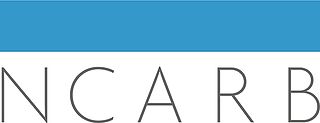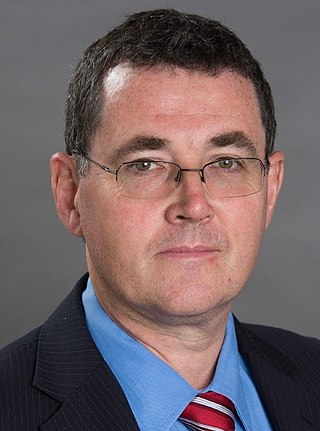
A registered nurse (RN) is a nurse who has graduated or successfully passed a nursing program from a recognized nursing school and met the requirements outlined by a country, state, province or similar government-authorized licensing body to obtain a nursing license. An RN's scope of practice is determined by legislation, and is regulated by a professional body or council.

A medical license is an occupational license that permits a person to legally practice medicine. In most countries, a person must have a medical license bestowed either by a specified government-approved professional association or a government agency before they can practice medicine. Licenses are not granted automatically to all people with medical degrees. A medical school graduate must receive a license to practice medicine to legally be called a physician. The process typically requires testing by a medical board. The medical license is the documentation of authority to practice medicine within a certain locality. An active license is also required to practice medicine as an assistant physician, a physician assistant or a clinical officer in jurisdictions with authorizing legislation.
A licensed practical nurse (LPN), in much of the United States and Canada, is a nurse who provides direct nursing care for people who are sick, injured, convalescent, or disabled. In the United States, LPNs work under the direction of physicians, mid-level practitioners, and may work under the direction of registered nurses depending on their jurisdiction.

A nurse practitioner (NP) is an advanced practice registered nurse and a type of mid-level practitioner. NPs are trained to assess patient needs, order and interpret diagnostic and laboratory tests, diagnose disease, prescribe medications and formulate treatment plans. NP training covers basic disease prevention, coordination of care, and health promotion.
An advanced practice nurse (APN) is a nurse with post-graduate education and training in nursing. Nurses practicing at this level may work in either a specialist or generalist capacity. APNs are prepared with advanced didactic and clinical education, knowledge, skills, and scope of practice in nursing.
A nurse educator is a nurse who teaches and prepares licensed practical nurses (LPN) and registered nurses (RN) for entry into practice positions. They can also teach in various patient care settings to provide continuing education to licensed nursing staff. Nurse Educators teach in graduate programs at Master's and doctoral level which prepare advanced practice nurses, nurse educators, nurse administrators, nurse researchers, and leaders in complex healthcare and educational organizations.
The National Council Licensure Examination (NCLEX) is a nationwide examination for the licensing of nurses in the United States, Canada, and Australia since 1982, 2015, and 2020, respectively. There are two types: the NCLEX-RN and the NCLEX-PN. After graduating from a school of nursing, one takes the NCLEX exam to receive a nursing license. A nursing license gives an individual the permission to practice nursing, granted by the state where they met the requirements.

The National Council of Architectural Registration Boards (NCARB) is a nonprofit corporation comprising the legally constituted architectural registration boards of the 50 states, the District of Columbia, Guam, the Northern Mariana Islands, Puerto Rico, and the U.S. Virgin Islands as its members. Its mission is to collaborate with licensing boards to facilitate the licensure and credentialing of architects to protect the health, safety, and welfare of the public.

Nursing in the United States is a professional health care occupation. It is the largest such occupation, employing millions of certified professionals. As of 2023, 3,175,390 registered nurses were employed, paid a median income of $86,070.
Doctor of Osteopathic Medicine is a medical degree conferred by the 38 osteopathic medical schools in the United States. DO and Doctor of Medicine (MD) degrees are equivalent: a DO graduate may become licensed as a physician or surgeon and thus have full medical and surgical practicing rights in all 50 US states. As of 2021, there were 168,701 osteopathic physicians and medical students in DO programs across the United States. Osteopathic medicine emerged historically from the quasi-medical practice of osteopathy, but has become a distinct and properly medical profession.
The Federation of State Medical Boards (FSMB) of the United States is a national non-profit organization that represents the 71 state medical and osteopathic boards of the United States and its territories and co-sponsors the United States Medical Licensing Examination. Medical boards license physicians, investigate complaints, discipline those who violate the law, conduct physician evaluations, and facilitate the rehabilitation of physicians where appropriate. The FSMB's mission calls for "continual improvement in the quality, safety and integrity of health care through the development and promotion of high standards for physician licensure and practice."
The Nurse Licensure Compact (NLC) is an agreement that allows mutual recognition (reciprocity) of a nursing license between member U.S. states. Enacted into law by the participating states, the NLC allows a nurse who is a legal resident of and possesses a nursing license in a compact state to practice in any of the other compact states without obtaining additional licensure in the remote states. It applies to both registered and practical nurses and is also referred to as a multi-state license.

Health professional requisites refer to the regulations used by countries to control the quality of health workers practicing in their jurisdictions and to control the size of the health labour market. They include licensure, certification and proof of minimum training for regulated health professions.
Nurse licensure is the process by which various regulatory bodies, usually a Board of Nursing, regulate the practice of nursing within its jurisdiction. The primary purpose of nurse licensure is to grant permission to practice as a nurse after verifying the applicant has met minimal competencies to safely perform nursing activities within nursing's scope of practice. Licensure is necessary when the regulated activities are complex, require specialized knowledge and skill and independent decision making.
A board of nursing is a regulatory body that oversees the practice of nursing within a defined jurisdiction, typically a state or province. The board typically approves and oversees schools of nursing within its jurisdiction and also handles all aspects of nurse licensure. In the US, state and territorial boards of nursing comprise the National Council of State Boards of Nursing.
Nursing is the largest healthcare profession in the United States, with more than 3.1 million registered nurses. Between 2012 and 2022, employment for nurses is projected to grow by 19 percent, which is more than any other profession. Nurses make up the largest component of staff in hospitals but are also able to provide care in clinic settings, patient's homes, schools, nursing homes, public health agencies, and mental health centers. In addition, nurses can be found in the military, in industry, nursing education, and do health care research. Nurses in these various roles and settings can provide direct patient care and case management, but also develop and establish nursing practice and quality standards within complex healthcare systems. As each degree can provide a different level of care for patients and function in vastly different roles, it is important to differentiate between them. The levels of nursing degrees have different educational requirements, licensure, and credentialing that can vary state to state.

The graduate nurse (GN) is a nurse who has completed their academic studies but not completed the requirements to become a registered nurse (RN). Depending on the country, state, province or similar licensing body, the graduate nurse may be granted provisional nursing licensure. A graduate nurse has not yet passed the National Council Licensure Examination (NCLEX-RN) to become a registered nurse (RN).
The Accreditation Commission for Education in Nursing (ACEN) is one of three program accrediting agencies for nursing education in the US and its territories. It is also a subsidiary of the National League for Nursing. ACEN is recognized by the Council for Higher Education Accreditation (CHEA) for nursing education programs. The non-profit agency is funded by dues from member schools.
Gurnick Academy is a private for-profit higher-education institution in California providing nursing, imaging and allied health programs. The school’s corporate office is located in San Jose, California, and it operates six campuses, in San Jose, Concord, Modesto, Fresno, Sacramento and Los Angeles, as well as offering distance education online. The academy is operated and owned by the Gurnick Academy of Medical Arts, with Konstantin Gourji as the chief executive officer.

David Charles Benton is a British nurse and regulatory and health policy expert who is the 5th Chief Executive Officer of the National Council of State Boards of Nursing (NCSBN) based in Chicago, Illinois, USA. Benton was previously Chief Executive Officer of the International Council of Nurses in Geneva, Switzerland. Benton publishes on nursing and health policy, leadership, occupational licensure and nurse regulatory models, workforce and migration, and research methods, including the use of social network analysis, and bibliometric analysis.







